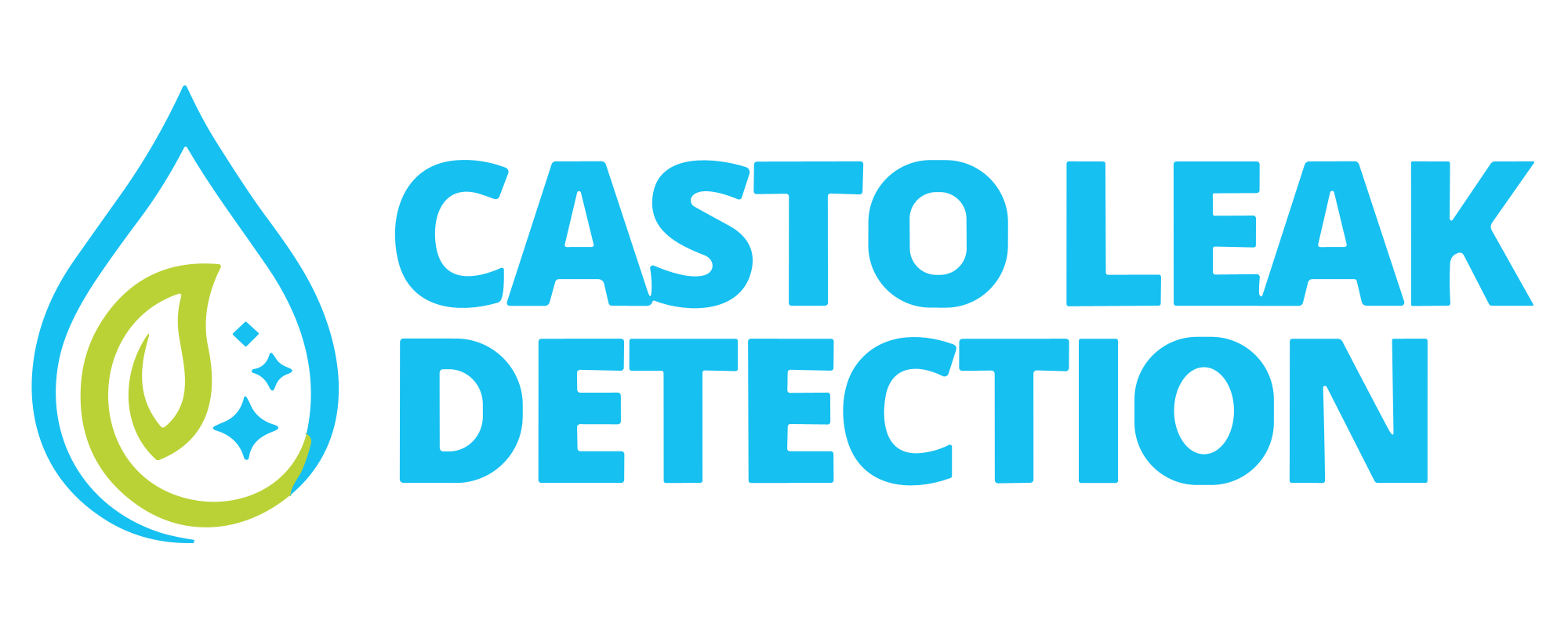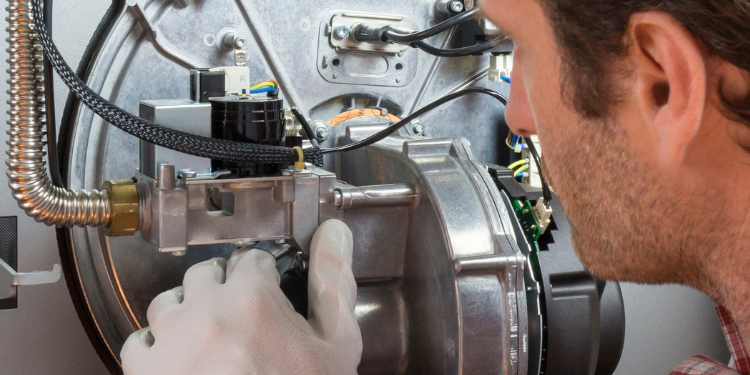Living in Richardson, Texas, means relying heavily on air conditioning to stay cool during the scorching summer months. However, if you’ve noticed water pooling around your AC unit, you might feel concerned about what’s causing it. A leaking AC is not just a minor inconvenience; it can signal a more serious issue that, if left untreated, can lead to costly repairs or replacements. Understanding why your AC is leaking water and how to address it is crucial to keeping your home comfortable and avoiding bigger problems down the road.
Key Takeaway:
An air conditioner leaking water is often the result of clogged drains, dirty air filters, or low refrigerant levels. Addressing these issues promptly can prevent damage to your unit and ensure it runs efficiently.
Clogged Condensate Drain Line
Air conditioners work by removing moisture from the air in your home, and this moisture must be drained properly. Over time, dirt, dust, and debris can accumulate in the condensate drain line, causing a blockage. When the drain is blocked, water has nowhere to go, which can lead to leaks around the unit.
The drain line is a critical component of your AC’s ability to manage moisture. A blockage in this line can cause water to back up and overflow, resulting in water damage around your AC unit. If you suspect your drain line is clogged, it’s best to call a professional from Casto Leak Detection, as they have the necessary tools and expertise to clear the line and prevent future issues.
Neglecting a clogged drain line can lead to long-term water damage, not just to your air conditioning unit but to your home as well. Moisture buildup can encourage mold growth, which poses a health risk to your family. A professional technician can also inspect the line for any cracks or signs of wear, ensuring that it’s functioning properly for the long term.
Dirty or Clogged Air Filters
Air filters play a crucial role in keeping your air conditioner running smoothly. A dirty or clogged air filter restricts airflow, causing the evaporator coils to freeze. When the coils freeze and eventually thaw, the excess water has nowhere to go, leading to leaks.
Regularly replacing or cleaning your air filters is essential to preventing this issue. When airflow is restricted, the unit has to work harder, which not only affects its performance but can also lead to a buildup of moisture. This additional strain on the system can reduce its lifespan, making it more susceptible to breakdowns and leaks.
It’s recommended to change your air filters every 1-3 months, depending on how often you use your AC and if you have pets or allergies. Clean filters allow for better airflow and prevent the evaporator coils from freezing, ensuring your AC operates at peak efficiency.
Low Refrigerant Levels
When your AC’s refrigerant levels are too low, it can cause the pressure inside the system to drop, leading to the evaporator coils freezing. Similar to the issue with dirty air filters, when the coils eventually thaw, the excess water can overwhelm the drain pan and cause leaks.
Low refrigerant levels can indicate a leak within the system, which requires immediate attention from a qualified HVAC technician. If left unaddressed, this can result in serious damage to the unit, reducing its efficiency and lifespan. Recharging the refrigerant should only be done by a professional to ensure the correct levels are restored and to prevent future leaks.
A refrigerant leak can also pose environmental risks, as these chemicals can be harmful if released into the atmosphere. Having a professional inspect and repair the issue ensures not only your comfort but also the safety of the environment.
Improper Installation of the AC Unit
A less common but equally important cause of water leaks from your AC unit is improper installation. If the air conditioner is not level or the drain pan is not properly aligned, water can pool in the wrong areas and eventually leak. This is especially common with window units or when an inexperienced technician installs the system.
Ensuring your AC is properly installed is key to its long-term performance. A professional installer will make sure that the unit is level and that all components are aligned correctly. This prevents water from accumulating in areas that could lead to leaks. If you suspect your unit was not installed correctly, reach out to a professional like Casto Leak Detection to inspect and correct any issues.
Improper installation can also lead to other problems, such as reduced efficiency, higher energy bills, and even more frequent breakdowns. It’s essential to have your system installed and regularly inspected by professionals to ensure everything is working as it should.
Full or Damaged Drain Pan
The drain pan is responsible for collecting the condensation from your AC unit. If the drain pan is full, cracked, or damaged, it can cause water to leak out of the unit. This is a common issue, especially in older AC units, where the pan can rust or deteriorate over time.
Replacing a damaged drain pan is a relatively simple fix, but it’s important to do so before the water causes more significant damage to your home. If you notice water pooling around your unit, checking the drain pan is one of the first things you should do.
A full or damaged drain pan can also cause water to overflow and lead to mold growth or water damage to surrounding areas. Regular maintenance of your AC unit, including checking the drain pan for damage, can help prevent this issue.
Improper Maintenance
Regular maintenance of your air conditioner is key to preventing water leaks. Many of the issues mentioned above, such as clogged drain lines, dirty filters, and low refrigerant levels, can be avoided with routine maintenance.
Scheduling an annual AC tune-up with professionals in Richardson ensures that any potential issues are caught early before they turn into more costly repairs. During a maintenance visit, a technician will clean your system, check refrigerant levels, inspect the drain line, and ensure everything is functioning correctly.
Ignoring routine maintenance can lead to a host of problems, including leaks, decreased efficiency, and even system breakdowns. Regularly servicing your air conditioner keeps it running smoothly and helps extend its lifespan.
Answering Common Questions
Why is water leaking from my air conditioner?
Water leakage from an air conditioner can result from clogged drain lines, frozen evaporator coils, low refrigerant, or even improper installation. Addressing these issues promptly can prevent damage and ensure efficient operation.
Can I fix my AC’s water leak myself?
While cleaning or replacing a clogged air filter can be a DIY task, more complex issues such as refrigerant leaks or clogged drain lines require professional assistance to ensure the problem is properly resolved.
Is a leaking AC dangerous?
Water leaking from an AC unit itself is not dangerous, but it can lead to water damage, mold growth, and potentially expensive repairs. It’s important to address leaks quickly to avoid these complications.
The Impact of Texas Heat on AC Performance
The extreme heat in Richardson, Texas, places a heavy strain on air conditioners, making them more prone to issues like leaks. High temperatures can cause the unit to work harder, increasing the likelihood of frozen coils or clogged drain lines. Regular maintenance and timely repairs are essential to keep your system running efficiently during the hottest months.
Humidity and AC Leaks
Humidity levels play a significant role in how efficiently your air conditioner removes moisture from the air. In areas with high humidity, such as Richardson, TX, your AC has to work harder to remove excess moisture. This can lead to increased condensation and a higher likelihood of water leaks if your system is not properly maintained.
Seeking Expert Advice
If you notice your AC leaking water, it’s important to contact a professional as soon as possible. Casto Leak Detection offers expert services to diagnose and repair any issues related to leaks, ensuring your air conditioner continues to operate efficiently. You can reach out to their team via their contact page.







